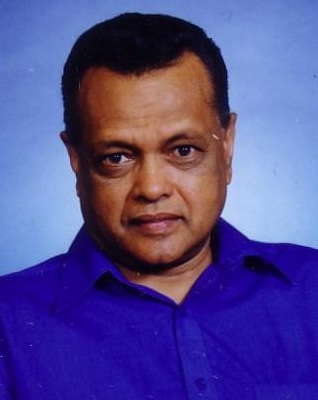 Fiji’s new Constitution is now in the making.
Fiji’s new Constitution is now in the making.
The Constitution Commission is expected to present the draft Constitution with an Explanatory Report to President Epeli Nailatikau next month.
The Government will appoint a Constituent Assembly, comprising representatives of civil society groups, political parties and others to consider and approve the draft.
A tribunal would thereafter consider if immunity provisions and other matters should be included in the draft.
Constitution Commission Chairman Professor Yash Ghai urged the public to view the draft document, which would be available next month.
Public apathy
Public interest is muted. Respect for the Constitution has waned, as people feel that there is no guarantee that it would not suffer the same fate as its predecessors did (1970 and 1997).
However, Constitutions are the foundation of democratic governance and Fiji is working towards restoring democracy after a seven-year gap.
The elections, under the new Constitution, are to be held before September 2014.
Prime Minister Commodore Voreqe Bainimarama, although an international pariah, has won approval from the people for his policies and practices.
His Government’s desire to remove racism has been lauded and institutions that were the agents of racism have been removed or silenced.
Fijian is now a common name for all peoples and race relations, particularly between indigenous Fijians and Indo-Fijians, has improved.
The Race Card
More than 40 years after independence, successive Governments have used racism to divide the nation to secure their own political dominance.
Such policies left the nation reeling, as Indo-Fijians suffered victimisation.
The policies were counterproductive and yet, politicians held on to it defiantly.
Their interests took priority over those of the people and the nation.
Hopefully the new Constitution would eliminate politics of race and usher Fiji into a new era where people are seen and treated as one and not desecrated by placing them in racial compartments.
The journey since independence in 1970 has been long and arduous.
There are high hopes and people have had a rare glimpse of what good governance entails.
Cycle of abuse
Interestingly, the template for future Governments has been formulated not by democratically elected Government but by the Fijian Army.
Formerly, it was seen as the tool of ethno-nationalism advocates, who used the Army to restore political power back into the hands of the indigenous Fijian oligarchy. This cycle of abuse of power came crashing down on December 5, 2006 when the Fijian Army turned against the indigenous Fijian oligarchy and removed the Qarase Government.
It was accused of corruption, nepotism and racism.
While the new Constitution may be the best for Fiji, there is no guarantee that it will run its course and that it would strengthen democracy in Fiji as forces of instability cannot be ignored.
Those politicians of yesteryears who wallowed in politics of racism will pounce on any opportunity to repudiate the proposed Constitution and restore the 1997 Constitution. It appears that the Fijian Army will be the arbiter as to who governs Fiji and fragility of democracy in Fiji cannot be ignored.
Expected impact
What impact will it have on Indo-Fijians’ It will be a remarkable change and departure from being treated as an alien in the land of their birth.
However, it will not be enough to stem the tide of their outflow from Fiji. In the aftermath of the first coup, Indo-Fijian exodus began and it accelerated following the 2000 coup. The share in the country’s population has dropped from 52% to 37% over the last 12 years.
Those that have suffered the barbs of racism will never want their children to suffer such indignity. More than 150,000 Indo-Fijians now live in countries outside Fiji and they continue to help their family members to join them in countries where they now reside.
Bu they have not the allure for Fiji.
We constantly reconnect with Fiji in our thoughts and our prayers. We left Fiji but Fiji in us remains strong and vibrant. We hope and pray that the proposed Constitution would unite the people and that Fiji is again acknowledged as the Jewel of the Pacific.






